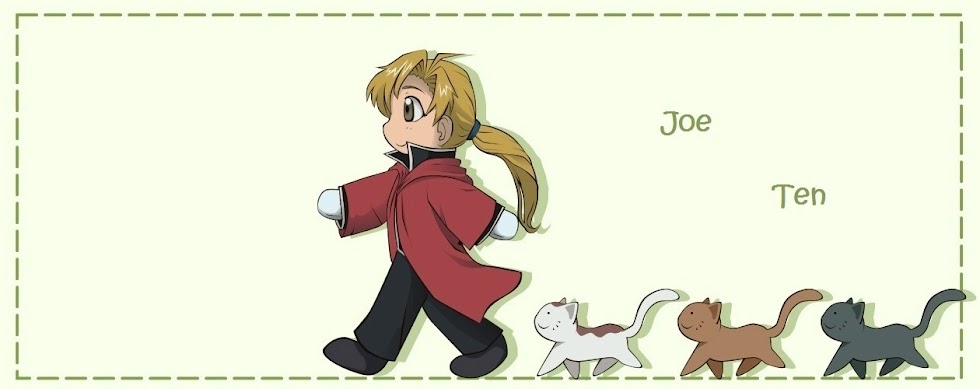I was on the topic of money versus experience on my friend’s
facebook some time ago. I said: “internship or part time job, on the most
fundamental basis, it is trade. It is the commodity you trade with your
boss/host company that is different. And the terms that constitutes a fair or
proper trade varies among individuals … … when I say
the terms varies with the individual. It is how much emphasis you put in
experience or money. In today's world, quantifiable terms such as money,
modular credits, and grades tend to be more dominant. I am no exception. I’m a
greedy person who wants high remuneration and good experience at the same time,
I’d be lucky if the other party is willing to offer me more than what I offer
in return.”
In other words, my priority in life
is money; it has always been that way. My logic was simple, no matter what job
you do, good or bad, if you aim for the best monetary remuneration, at least
you can see that you are compensated for your time. But one thing I didn’t
manage to figure out: why did I think that way? I have been talking about
trying to figure out what I want in life for a long time, and I didn’t have the
answer. This colleague pointed out a simple fact (rough quote): “A lot of
people are constantly trying to figure out what they want in life, but the fact
is: you will almost never find out. Just like love: people are always trying to
know if that is the love of their life, but you never do. Very few people
actually do find out or even achieve what they want in life. They are really
lucky. There is really no good answer to what you want in life, some people
spend all their time chasing after money, climbing up the ladder, but they find
that they are climbing it for the wrong reason; they weren’t happy.”
The learning point I derived from
that is: I do not know what I want in life, but I chose money. As always, it
was a defensive measure. I mentioned that I am an extremely defensive person
who hates to be taken advantage of. So I chose money, this ensures that no
matter how bad the job is, at least I am getting quantifiable returns. Not a
very smart choice, maybe, but it seem to be the best path I can follow right
now.
A friend asked her if she finds me
negative, since the views I hold is often considered extremist by my peers. Her
reply was really reassuring: “no, he is not, he just have more awareness of
things going on.” This gives me good confidence that my train of thought is
quite correct. I was very much affected by how people view me due to the events
going on around me; I was starting to think that I am indeed being extremist.
But I am not. In her words, I am more aware of things going on in the world than
my peers do. My peers grow up in relatively protected environment compared to
myself. I had to pay my own bills, I have to earn my own upkeep, I was forced
to work while others are enjoying their holidays, and even when my peers are
also working on internship, they get good allowance from their parents, I don’t.
Yes, I’m complaining quite a lot, many of my peers think that it's not a big deal, but it was always a big deal to me, I took it to heart. But I am grateful
for some of my experiences, I’ve seen and know that this world is not a pretty place. While the many of them read to 'learn' that the world sucks, I've lived it. For the record, I know I am still extremely shallow compared to the world out there; but compared to many of the rest, I am well better, for now.
I received a lot of compliments tonight as well, and these compliments coming from people I respect, that is really reassuring. Having a mindset different from other people is tough, many people fail to see what you see and tend to think that you’re just an insolent asshole. Mixing with them for long makes you feel like an outcast. When living in a box, you tend to only see the corners and begin to forget about the world outside, you start to accept the box, and think like those with you in the box; and the box gets even smaller. I am glad that there are in fact quite a number of people who agree with me and these people are well achieved in what they do, I am not alone.
I received a lot of compliments tonight as well, and these compliments coming from people I respect, that is really reassuring. Having a mindset different from other people is tough, many people fail to see what you see and tend to think that you’re just an insolent asshole. Mixing with them for long makes you feel like an outcast. When living in a box, you tend to only see the corners and begin to forget about the world outside, you start to accept the box, and think like those with you in the box; and the box gets even smaller. I am glad that there are in fact quite a number of people who agree with me and these people are well achieved in what they do, I am not alone.
